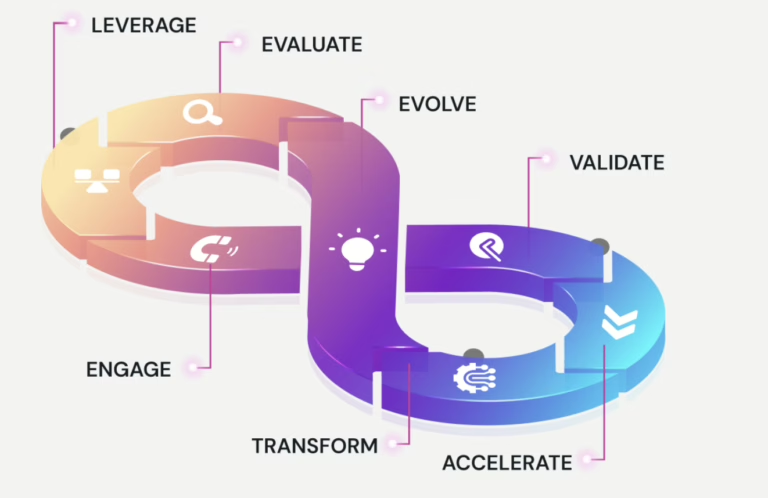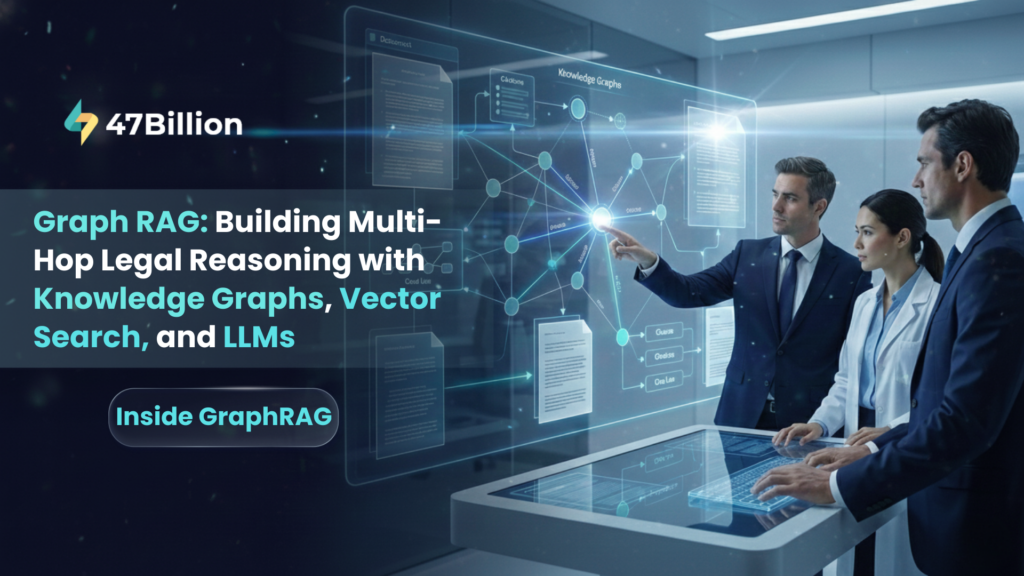Fintech, a blend of finance and technology, has always been at the center of innovation, pushing the boundaries of how financial services are delivered.
However, nothing has shaped this industry more profoundly than artificial intelligence (AI). It is transforming the financial landscape by providing opportunities for efficiency, security, and customer personalization.
Here, we will explore the powerful intersection of AI and fintech, diving into its current applications, benefits for businesses, and how it is reshaping the future of finance. We’ll also look at the top applications of AI in the financial world and the significant impact of this transformation.
The Current State of AI in Fintech
The fintech industry has experienced remarkable growth, much of it driven by AI. According to recent statistics, the global fintech market is currently valued at $340.1 billion, with the market value of AI in fintech alone estimated at $44.08 billion. With a projected compound annual growth rate (CAGR) of 2.9%, AI’s share in fintech is expected to reach $50 billion over the next five years.
AI adoption in fintech is widespread, with 72% of companies utilizing AI in at least one business function. This adoption has led to significant improvements in key areas such as data processing, security management, and customer service.
Additionally, a majority (67%) of organizations plan to increase their spending on AI and data technologies, signaling that AI will play a critical role in the future of fintech. Furthermore, AI implementation in processes like identity verification is set to save banks $900 million in operational costs and cut millions of hours from onboarding processes.
AI-powered solutions such as chatbots and virtual assistants are also on the rise. These solutions help fintech companies reduce costs by up to 80% while improving the accuracy of customer interactions. These statistics highlight AI’s immense potential to revolutionize fintech through increased efficiency and personalized financial services.
Applications of AI in Fintech
AI’s ability to process and analyze vast amounts of data has led to several practical applications in fintech. Here are six of the most impactful ways AI is transforming the industry today –
Data Processing
Financial institutions handle vast amounts of data daily, and ensuring its accuracy is essential. AI and machine learning (ML) tools help automate data quality management by identifying patterns, flagging anomalies, and correcting errors in real-time. This streamlines data processing, ensuring that financial institutions maintain accurate and reliable information while reducing the cost of errors.
AI-Assisted Document Search
Many financial institutions face the challenge of navigating vast amounts of documentation. AI-assisted document search leverages natural language processing (NLP) to streamline the retrieval of relevant information. By enabling quick and precise access to documents, organizations can enhance decision-making processes and improve compliance adherence.
Structured Data Extraction from Unstructured Documents
Many financial documents contain unstructured data, making it difficult to extract actionable insights. AI-powered tools can automate the extraction of structured data from these unstructured sources, ensuring that critical information is captured accurately and efficiently. This capability not only saves time but also minimizes the risk of errors that could lead to compliance issues.
Financial Predictive Forecasting
Predictive analytics powered by AI equips financial institutions with the ability to forecast trends, assess risks, and make informed investment decisions. By analyzing historical data and identifying patterns, these systems can deliver insights that enhance strategic planning and resource allocation.
Portfolio Management
AI-driven portfolio management tools help investors optimize their investment strategies by analyzing market trends, individual asset performance, and economic indicators. These tools can suggest real-time adjustments to portfolios, ensuring they remain aligned with the investor’s objectives while mitigating risks.
Auto-Generate Compliance and Regulatory Filings
The ever-evolving regulatory landscape demands meticulous attention to compliance. AI can automate the generation of compliance and regulatory filings, ensuring that organizations meet their obligations without the burden of manual data entry. This automation reduces operational costs and enhances accuracy, allowing teams to focus on higher-value tasks.
Automated Financial Reporting
Generating financial reports is a time-consuming task that requires data from various sources. AI models enable financial institutions to automate this process, producing accurate reports faster and more efficiently. These reports can be tailored to meet the needs of different stakeholders, helping decision-makers access the insights they need to make informed choices.
Loan Underwriting
AI is also revolutionizing the loan underwriting process. By analyzing traditional and non-traditional data points, such as credit history and social media behavior, AI algorithms can assess a borrower’s creditworthiness more accurately and faster than ever before. This leads to quicker loan approvals and lower costs for financial institutions, with potential cost savings of up to $31 billion in underwriting expenses by 2030.
Robotic Process Automation (RPA)
RPA combines the power of AI and software robots to automate repetitive tasks that once required human intervention. This technology streamlines various financial processes, from transaction processing to regulatory reporting, improving operational efficiency while reducing errors.
Customer Service
AI-powered chatbots and virtual assistants are transforming how fintech companies interact with their customers. These systems can handle routine inquiries in real time, providing instant support across multiple channels. AI chatbots reduce the burden on customer service teams while offering a more seamless and efficient customer experience.
Fraud Detection
Fraud detection remains one of the most critical concerns for financial institutions as fraudsters continue to evolve their tactics. AI-powered systems can analyze vast amounts of data to detect patterns that indicate fraudulent activity, flagging suspicious transactions before they cause harm. By automating this process, AI frees up human resources to focus on more complex issues while also staying one step ahead of increasingly sophisticated fraud attempts.
The AI Revolution at GITEX 2024: A 47Billion Perspective
GITEX 2024 is set to bring all AI enthusiasts to the center stage. It will feature everything from advanced machine learning to robotics. As organizations strive to enhance efficiency and personalization, AI’s role in automating complex tasks and streamlining processes becomes increasingly vital. This year’s event will gather industry leaders, innovative startups, and AI experts to present their latest breakthroughs, offering a glimpse into the future of smart automation.
At 47Billion, we understand the strategic importance of Intelligent Automation. This event will provide valuable insights into how these new automation paradigms are designed to enhance efficiency, personalize user experiences, and address complex business challenges, representing a significant leap forward in technology.
If you’re interested in exploring how AI-driven solutions can benefit businesses, GITEX 2024 is the premier tech exhibition to attend. Influential thought leaders will demonstrate practical applications of AI technologies that deliver measurable outcomes, aligning perfectly with our mission at 47Billion to empower organizations through innovative solutions.
We are undoubtedly on the edge of a smarter, more automated world, and GITEX 2024 is here to illuminate the path ahead.
Stay tuned for more exciting updates from 47Billion!







